Go Get’Em Boy
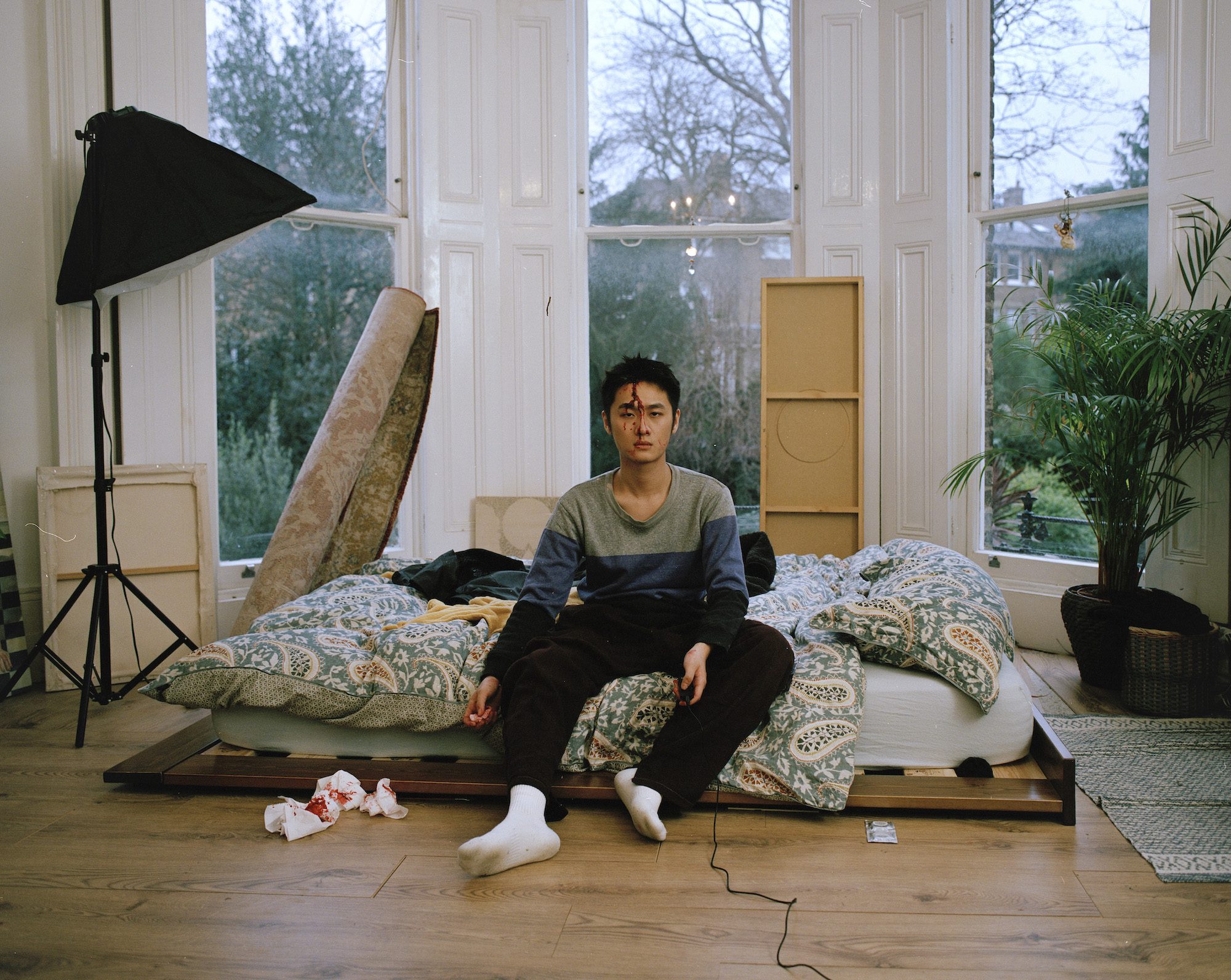
Bloodshed is the best proof of a real man.
“Go get them, boy!” is een kunstzinnig fotografieproject dat de maatschappelijke druk en verwachtingen van mannelijkheid onderzoekt. Het project is een reactie op het beperkte en dwingende idee over ‘mannelijkheid’ dat de fotograaf door zijn familie en binnen de Chinese samenleving wordt opgelegd. Hoewel het niet strafbaar is, worden LHBTQIA+’ers in China actief gemarginaliseerd door een gebrek aan door de staat uitgevaardigde beschermende wetgeving.
Ziyu gebruikt humor in zijn fotografie om vooringenomen opvattingen over de mannelijke genderidentiteit te weerspiegelen en te reproduceren. Om deze uitingen van identiteit te onderzoeken maakt hij gebruik van verschillende rekwisieten, kostuums en decors. In één van de beelden verwijst hij naar de macht van de overheidsfunctionaris, die het onmiskenbare bewijs is van de overheersende mannelijkheid. De pasfoto’s van Chinese overheidsfunctionarissen hebben allemaal een blauwe achtergrond met kleurverloop.
Over de fotograaf
Ziyu Wang (1998) is een Chinese fotograaf, geboren in een traditioneel Chinees gezin. Zijn werk probeert de consensus te doorbreken en verouderde opvattingen over mannelijkheid opnieuw vorm te geven door middel van performatieve fotografische series.
Wang’s foto’s plaatsen een spanning tussen verwachte gedragingen als Chinese man en rebelse of provocerende tegengedragingen. Op die manier ondermijn hij familiale en maatschappelijke verwachtingen door er een hedendaags antwoord op te creëren. Hij voert scenario’s op die een gevoel van mannelijkheid vervullen door middel van zelfportretten in een intieme omgeving. Door zijn eigen ervaringen te delen in een confrontatie met deze stereotypen wil hij het bewustzijn vergroten van de misvattingen over de homoseksuele ervaring die nog steeds een barrière opwerpen tussen generaties. Door deze op te splitsen in aangrijpende en absurde fotografische scenario’s gaat hij om met percepties van homoseksualiteit, mannelijkheid en vrouwelijkheid, wat de kern vormt van zijn verhalen.
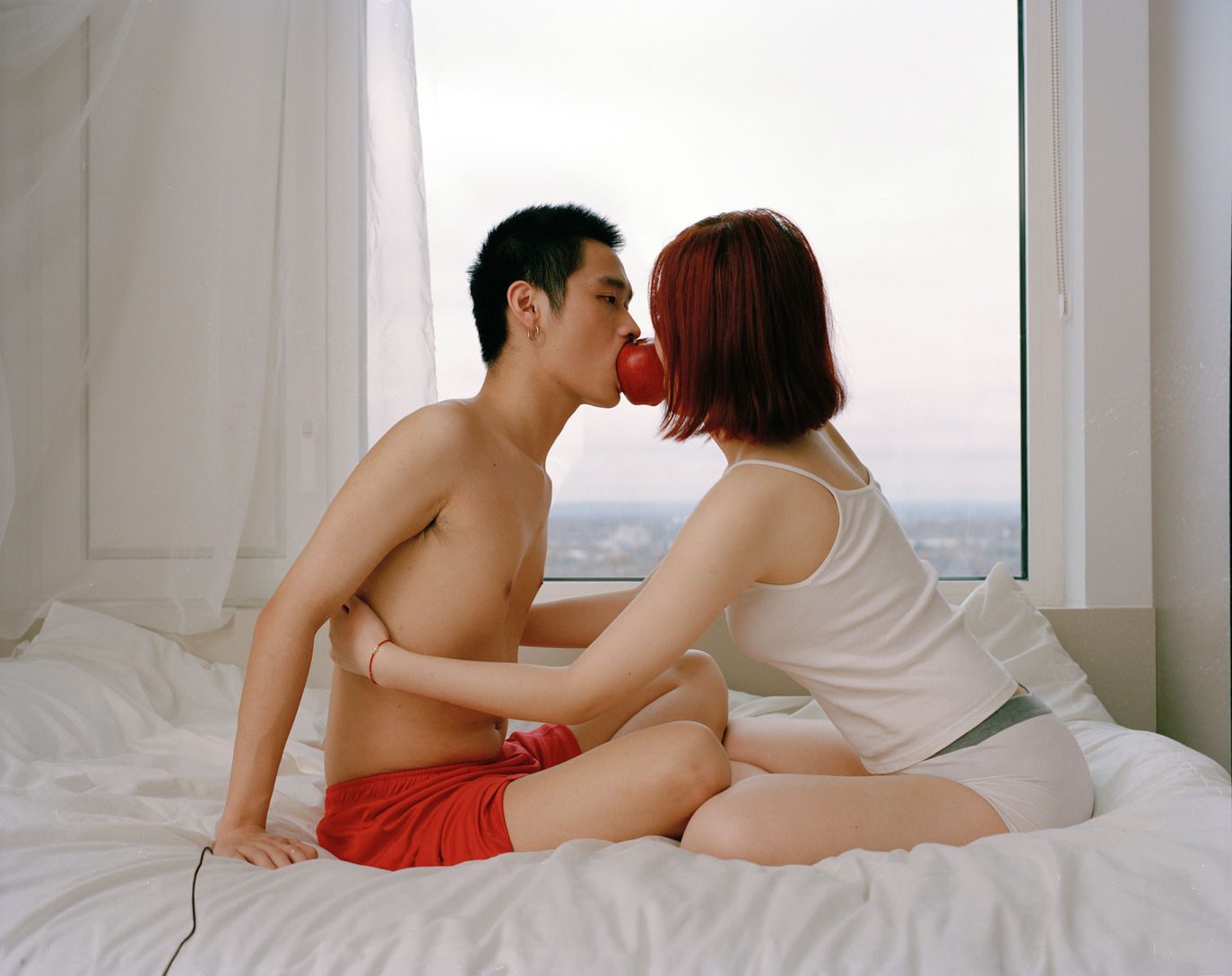
A couple eating the same apple together is part of a traditional Chinese wedding.
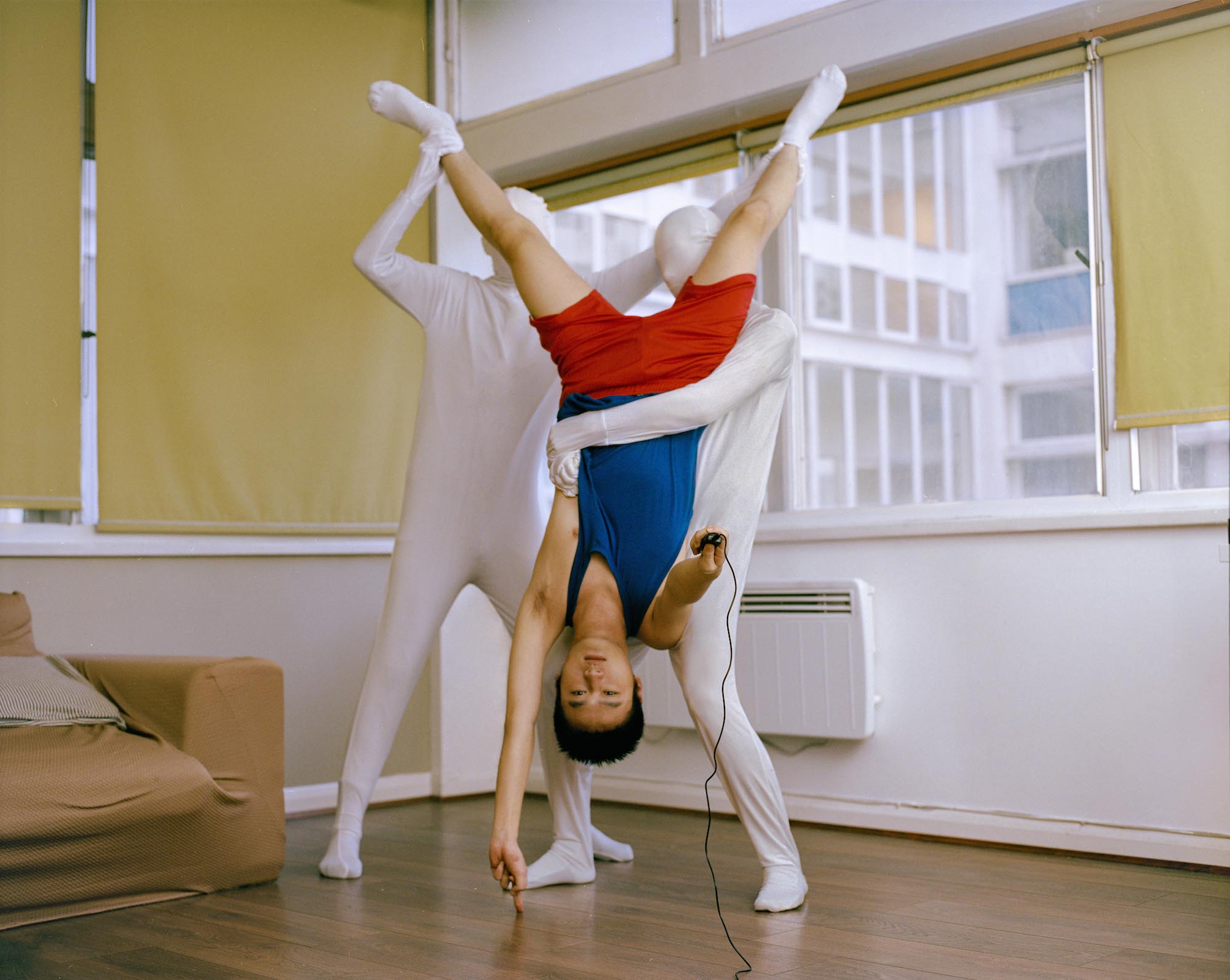
What you might like to see.
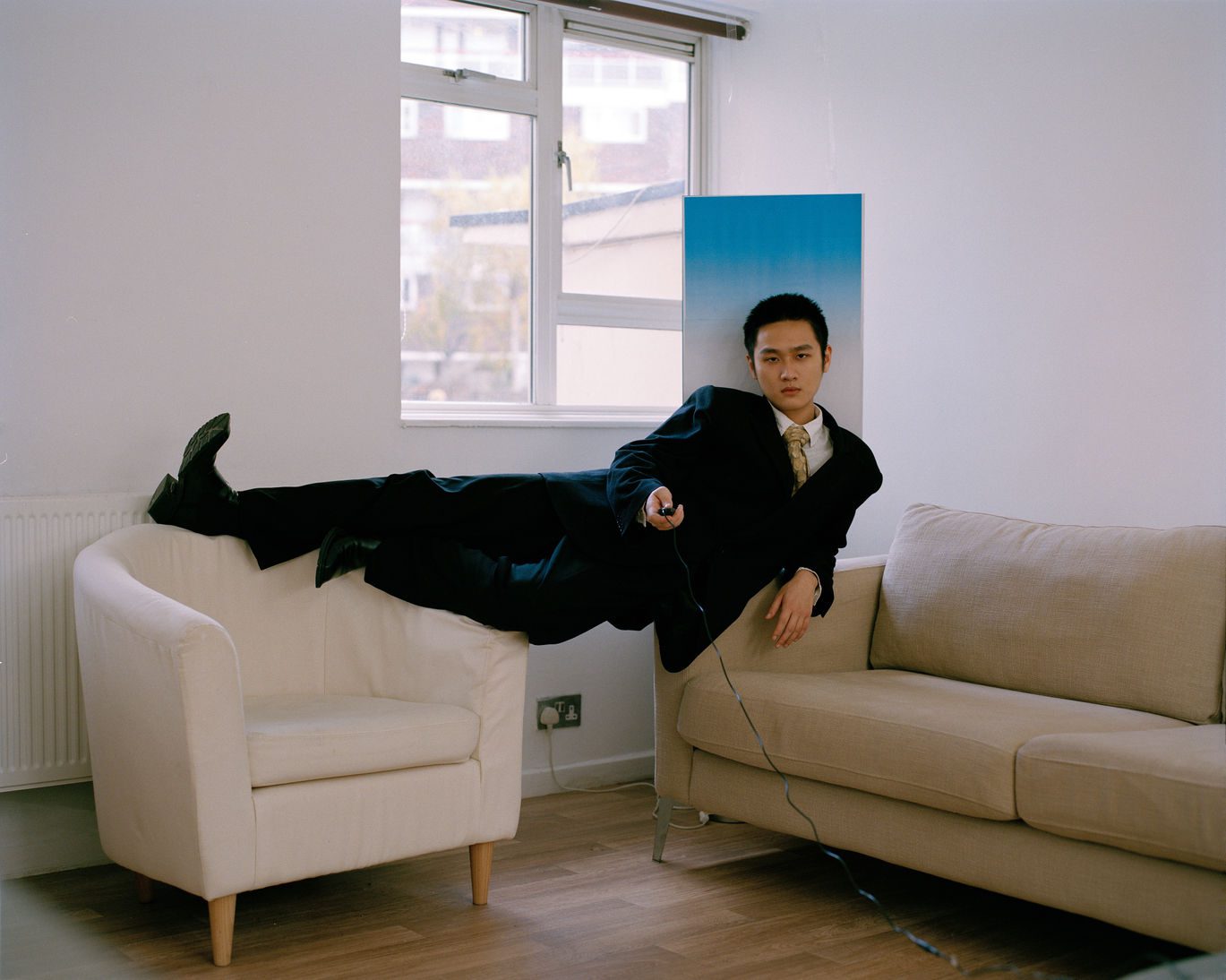
The power of government officials is undoubtedly a testament to hegemonic masculinity. Chinese government officials’ ID photos all have a blue gradient image as a background. I couldn’t actually be a government official, but I could take a photo of the same and make my father happy.
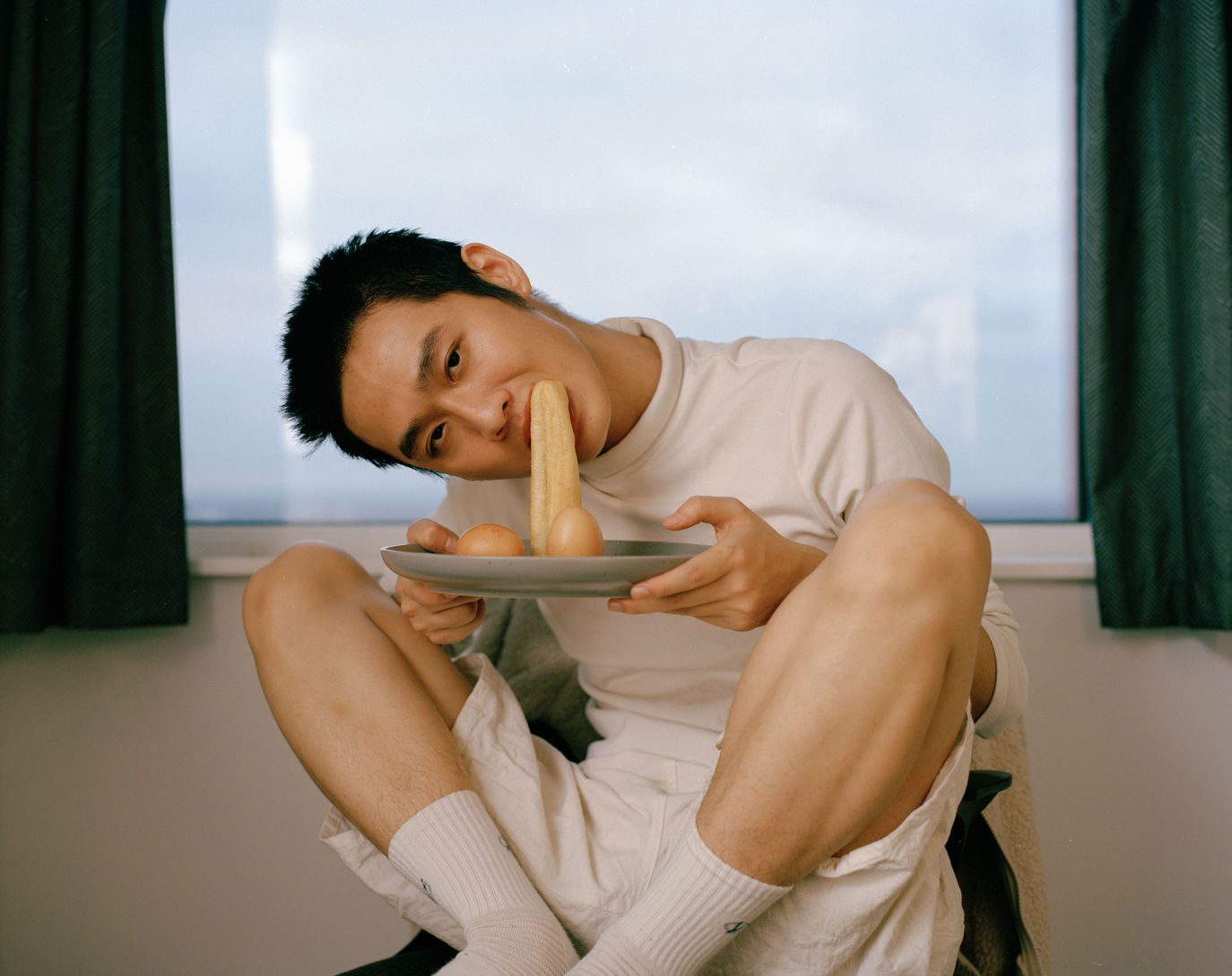
Before exams my father would always let me have a Stick bread and two eggs, which when put together looked like 100. Meant that I would get 100 per cent in the exam. But in this photo I have accidentally placed them in the wrong place.
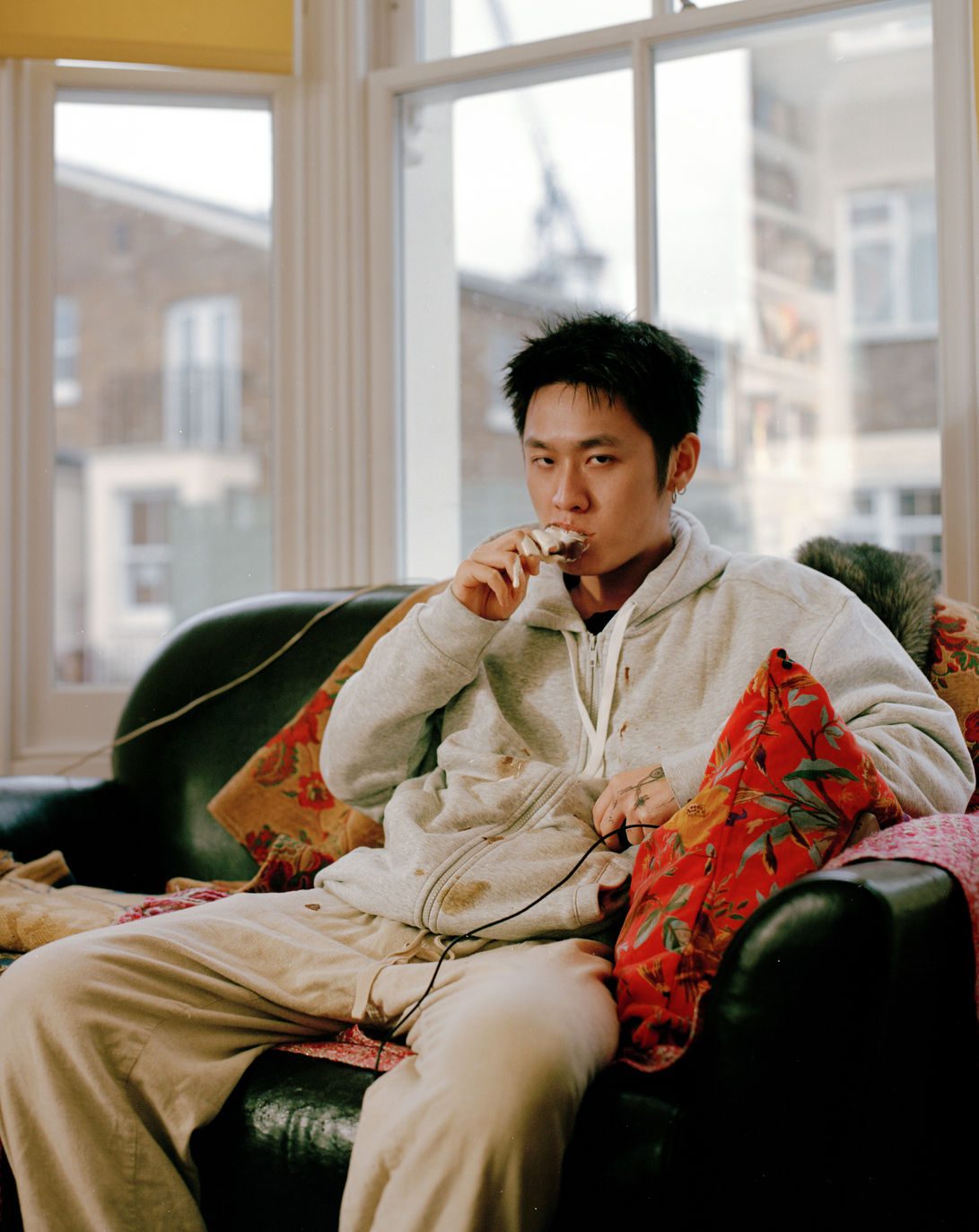
Don’t eat like a sissy.
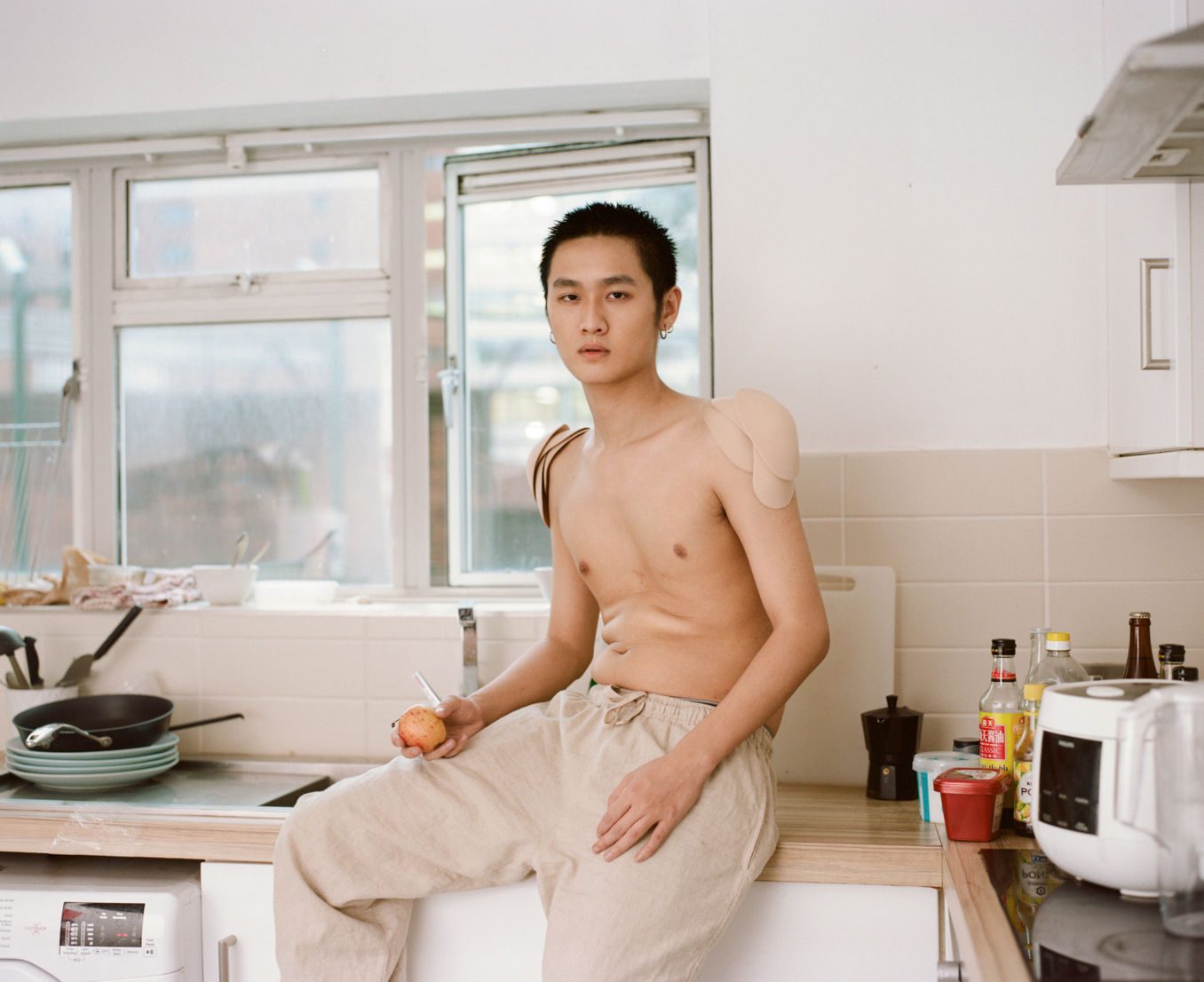
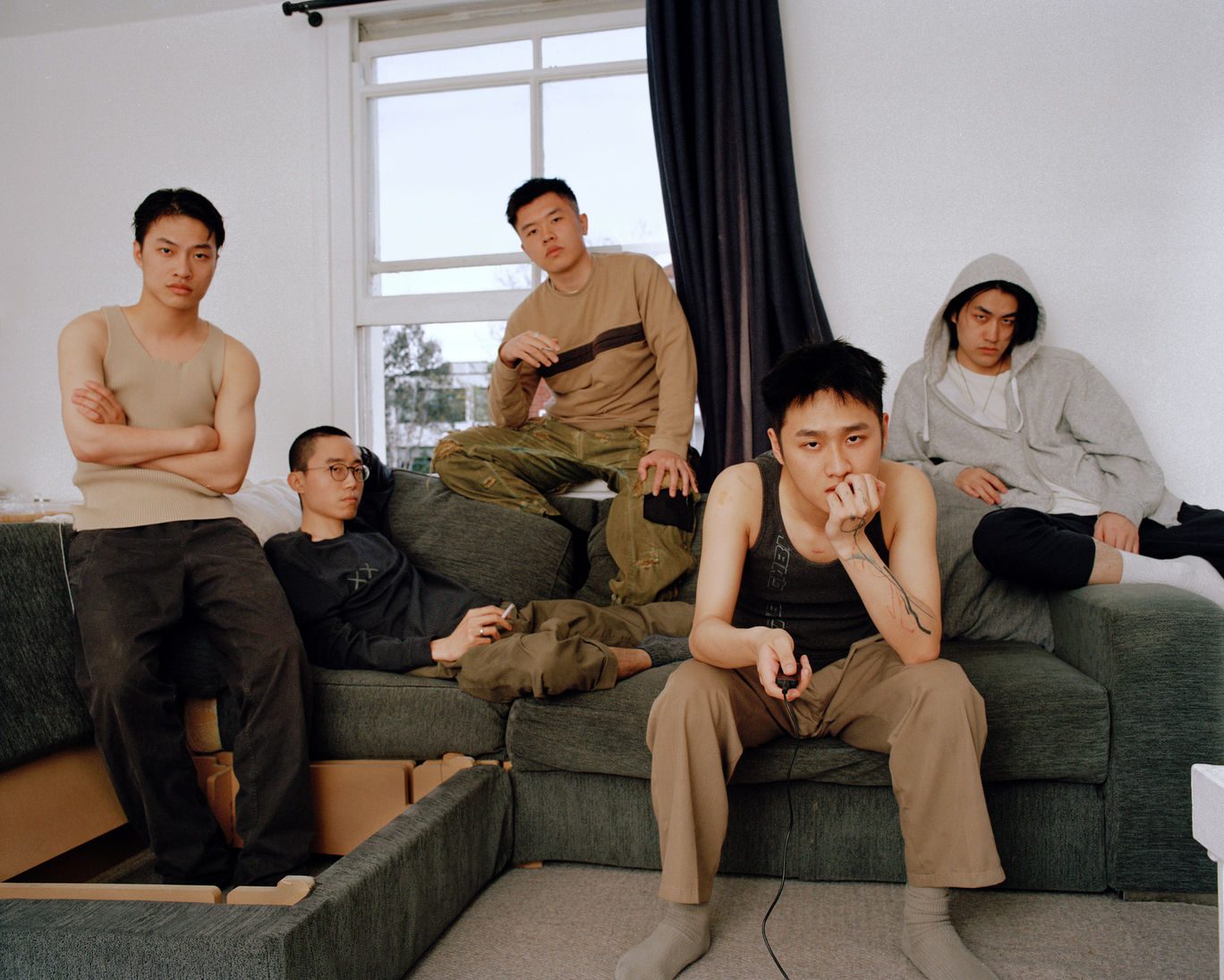
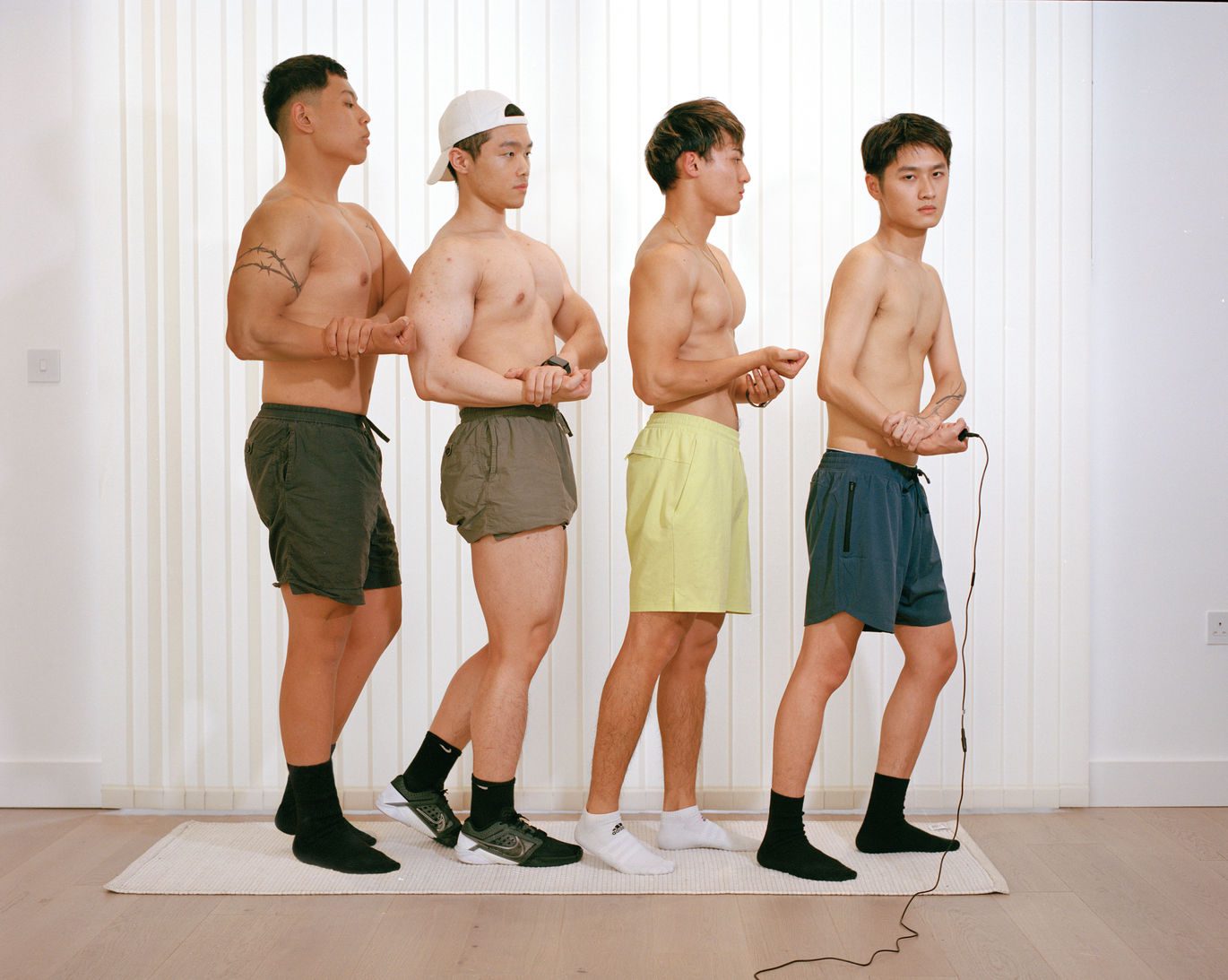
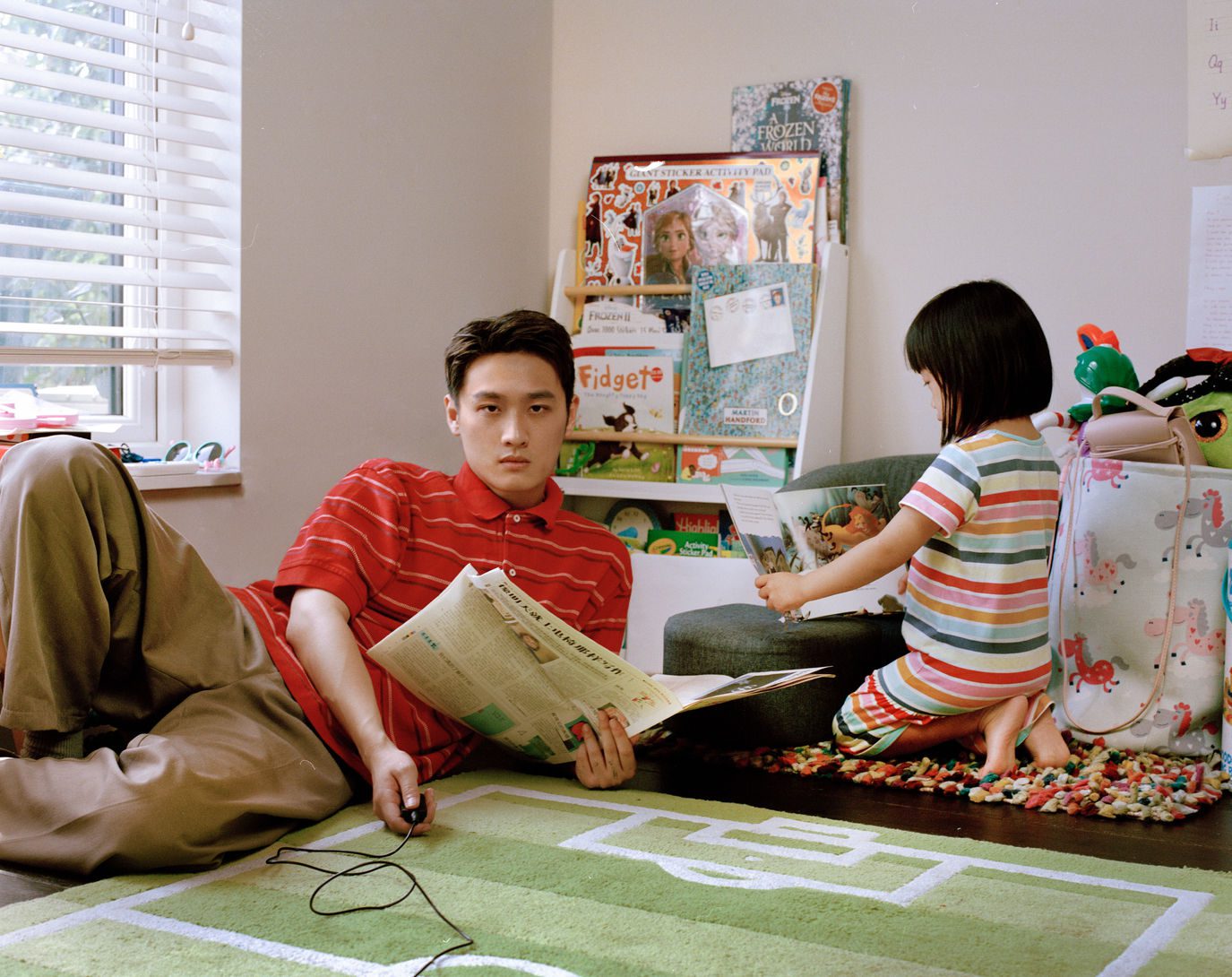
About the series
“Go get them, boy!,” is an artistic photography project that explores the societal pressures and expectations of masculine identity. The project is a response to the limited and restrictive idea of ‘manhood’ imposed onto the photographer by his family and within Chinese society. Although not criminalized, LGBTQIA+ people in China are actively marginalized through a lack of state-issued protective legislation.
Ziyu uses humor in his photography to emulate and recreate conditioned perceptions of masculine gender identity. To explore these performative expressions of identity, he makes use of various props, costumes and sets. In one of the images, he hints at the power of the government official, who is the undoubted testament to hegemonic masculinity. Chinese government officials’ ID photos all have a blue gradient background.
About the photographer
Ziyu Wang (b.1998) is a Chinese photographer, who was born in a traditional Chinese family. His work looks to break consensus and reshape outmoded notions of masculinity through performative photographic series.
Wang’s photographs juxtapose a tension between expected modes of behaviour as a Chinese man, together with rebellious or provocative counter behaviours. In this way, he is subverting familial and societal expectations by creating a contemporary response to these. He performs scenarios that fulfill a sense of masculinity using self-portraits in intimate surroundings. He looks to raise awareness of the misconceptions of the queer experience that still create a barrier between generations, by sharing his own experiences in a confrontation with these stereotypes. Breaking these down into poignant and absurd photographic scenarios is a way of dealing with perceptions of homosexuality, masculinity, and feminity, which is at the heart of his narratives.

